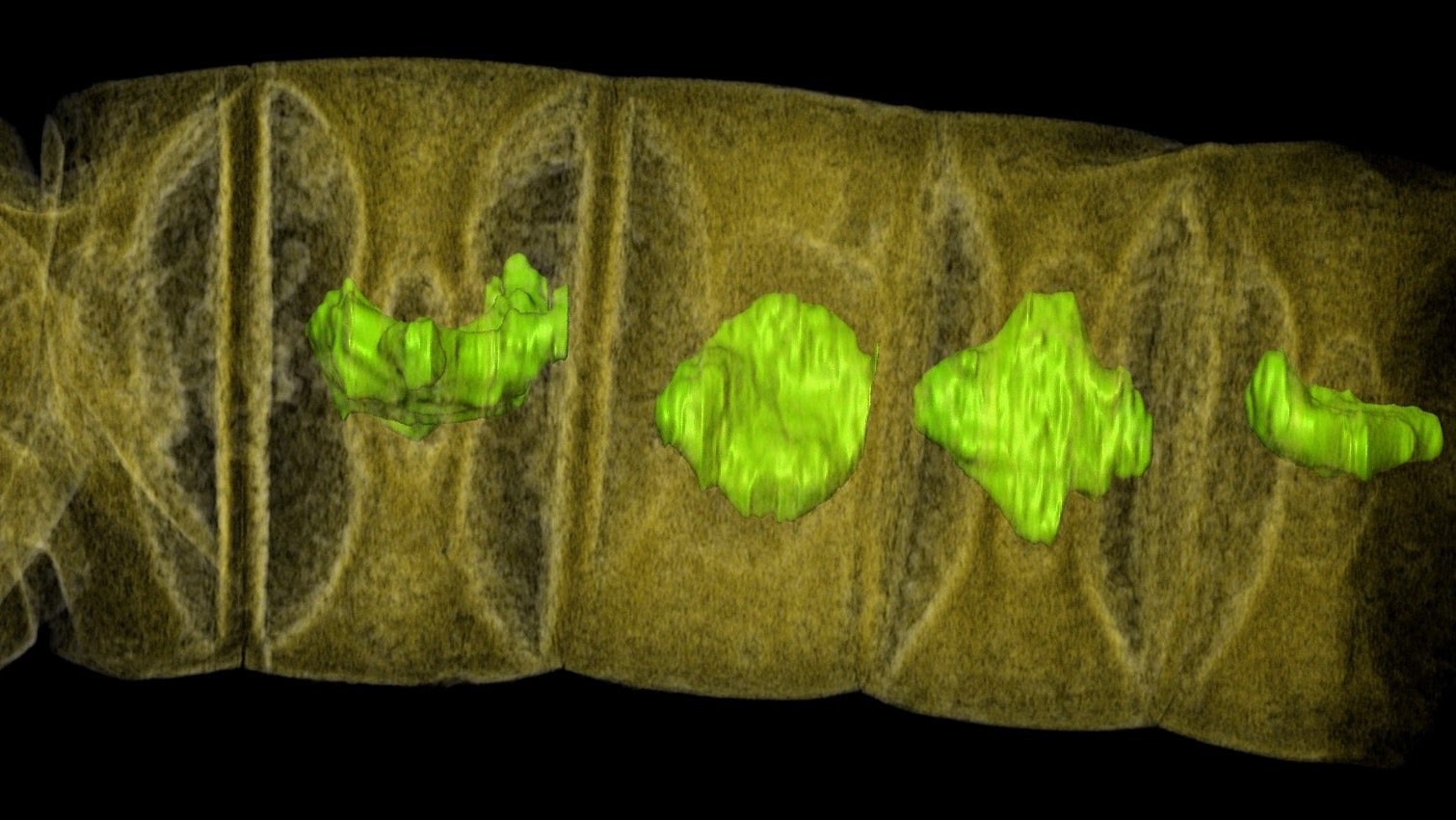A newly discovered fossil suggests plants are hundreds of millions of years older than we thought
A new discovery in central India is pushing back the timeline for the earliest-known plant life by several million years.


A new discovery in central India is pushing back the timeline for the earliest-known plant life by several million years.
The discovery was made by a team of researchers, led by Stefan Bengtson of the Swedish Museum of Natural History, while studying three sets of preserved 1.6 billion-year-old fossil communities from the Chitrakoot district in the state of Madhya Pradesh. These communities were made up of ancient organisms which originally lived in shallow waters with mats of bacteria. The researchers discovered that these organisms shared several features with red algae, or Rhodophyta, one of the oldest groups of algae and plant-life known to exist on Earth.
Since there is no DNA remaining within these structures, there’s no foolproof way to confirm the exact classification of the organisms. But researchers found that their characteristics, which included large cell volumes and complex structures, “agree quite well with the morphology and structure of red algae,” Bengtson says.
Until now, the oldest red algae known to researchers was Bangiomorpha, found in the Hunting Formation in the Canadian Arctic Archipelago, and estimated to be 1.2 billion years old. Now, plant life “may have a longer history than commonly assumed,” the researchers wrote in a study published in PLOS Biology on March 14.
Multicellular organisms are only believed to have come into being about 600 million years ago. When scientists previously dated the earliest-known plant life to 1.2 billion years, they assumed that multicellular organisms took 600 million years to develop. With these latest findings, it seems like that evolution actually took place over the period of a billion years. This finding could prompt scientists to rethink the timeline of all life.
“Plants are absolutely crucial for life on Earth: They produce the air we breathe, the food we eat, and the soil we live on,” Bengtson told Quartz. “To know that they began at least a billion years before multicellular life started to transform the biosphere raises the question of why it took so long for multicellular life to make a difference.”
Karl Joseph Niklas from Cornell University’s School of Integrative Plant Science says that if the fossils discovered in India have been properly identified, and their age has been accurately determined, their existence could show that “life may have been more precocious than most of us thought.”